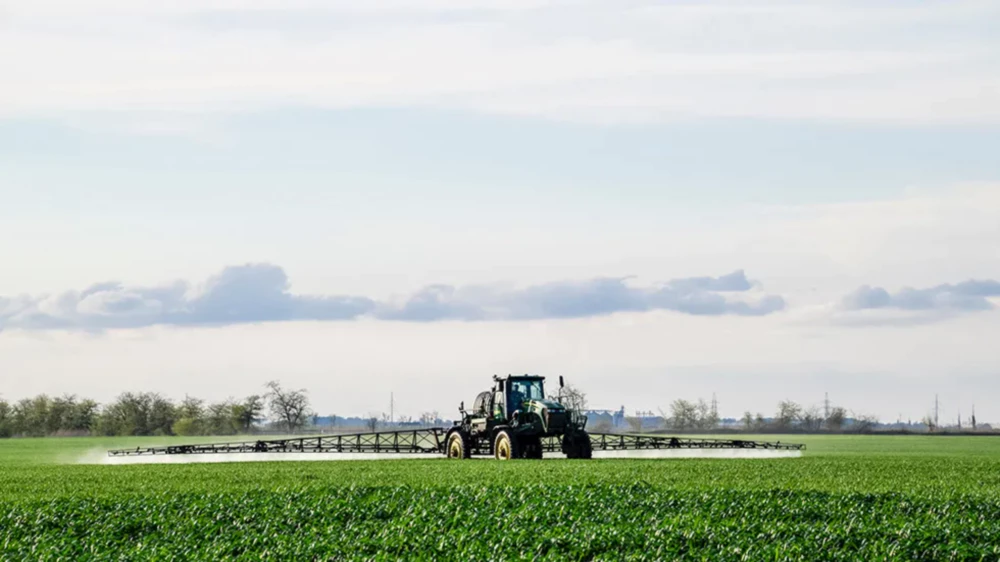Imagine showing up for work only to learn you can no longer use one of the most important tools to do your job well. For a chef, it might be spices; for a barber, it could be scissors; and for a farmer, one of those tools is pesticides.
Farmers use pesticides to protect their crops against the weeds, insects and plant diseases that threaten the safety and sustainability of our crops. As a former Iowa farm kid, I have grown to understand how a changing climate will bring new pests and diseases that will threaten our chance of a successful harvest each year. Farmers need to have all their tools available to adapt to our dynamic environment, and pesticides are just one of those tools.
Pesticides undergo a rigorous evaluation by the U.S. Environmental Protection Agency (EPA). It takes an average of more than 11 years to go from laboratory concept through research and regulatory review before they can be applied to farms. Driven by the EPA’s career scientists with the necessary expertise, this process helps ensure that pesticides on the market meet strict safety standards to keep farmers, consumers and the environment safe. This provides farmers access to effective tools that can be applied safely and are regulated using the best available science in accordance with all required laws.
However, some states, such as California, are trying to circumvent these career scientists by adopting pesticide labeling regulations that conflict with the EPA’s scientific conclusions.
California’s regulations ignore decades of EPA research and approvals and jeopardize access to the tools American farmers need. Fortunately, bipartisan legislation introduced in Congress would protect farmers’ access to these critical crop protection products. The Agricultural Labeling Uniformity Act (H.R. 4288) seeks to establish a harmonized framework that respects the EPA’s pesticide review process and assures national uniformity in pesticide labeling while still allowing localities to enact use restrictions.
So, what would it look like if California got its way? What if the federal label didn’t hold the power of law? What if each state could contradict the more than a decade of work that goes into registering new pesticide products and creating the labels?
The result would be disastrous for our farms, our food, our environment and our health. Politics would trump science in determining which pesticides could be used in which states. Farmers living in certain states might be deprived of the tools they need to control weeds, insects and fungal diseases that threaten the health and safety of their crops. And farmers or other pesticide applicators who work across state lines would have to decipher and comply with a myriad of state and local regulatory standards. A patchwork of regulations would erode the public trust in our regulatory process and make it far more challenging for all levels of government to monitor and enforce our pesticide laws.
Today, more than 34 million people in the U.S. are food insecure — a number that has only increased since the onset of the COVID pandemic. The conflict between Russia and Ukraine — two of the world’s largest wheat exporters — has exacerbated global food shortages. However, even without these global events, ensuring a stable domestic food supply is a challenge. Each year, farmers lose up to 40 percent of crops to pests and diseases. Without pesticides, this number could increase, resulting in lower yields and higher prices, and leading to many more going hungry.
Not only would reduced access to vital pesticide products hurt our farmers and our food supply — it would also harm our environment. It is not particularly well known that pesticides are essential to implementing more sustainable and climate-friendly farming practices. But the truth is that without them, growers would need to rely more on tilling their soil. Research has shown that increased tillage resulting from reduced access to one of the most commonly used pesticides would release 33.72 million additional tons of carbon dioxide into the atmosphere — equivalent to the annual carbon output of more than 6.8 million cars.
As more states consider following California’s lead and replacing sound regulatory science with politics, this dystopian future comes closer and closer. But Congress can help.
The commonsense, bipartisan Agricultural Labeling Uniformity Act would reinforce the EPA’s rigorous scientific review process and prevent states from tying another hand behind the backs of America’s growers.
By passing this legislation through any available means — including through this year’s Farm Bill — Congress can protect farmers’ ability to maintain strong crop yields, keep food affordable and allow for the continued use of pesticides that protect our homes, our lives and our health.
Farmers need tools to farm, and the pesticides approved by the federal EPA need to be recognized as a vital part of the farmer’s toolbox.
Chris Novak is the president and chief executive officer of CropLife America, which represents developers, manufacturers, formulators and distributors of plant science solutions for agriculture and pest management in the U.S.
Source : The Hill

